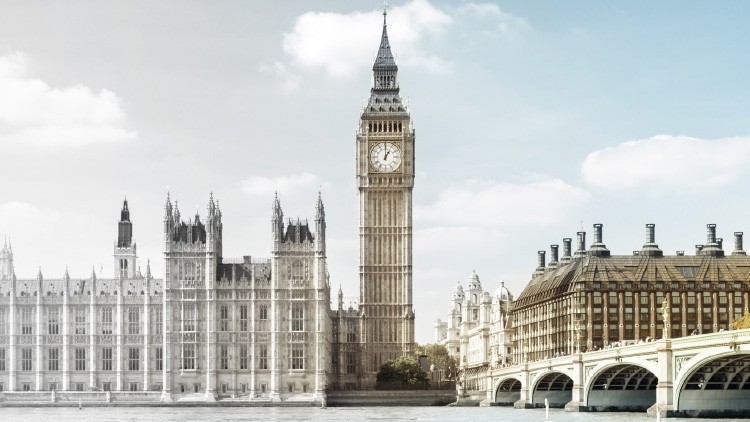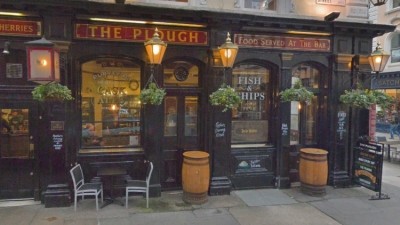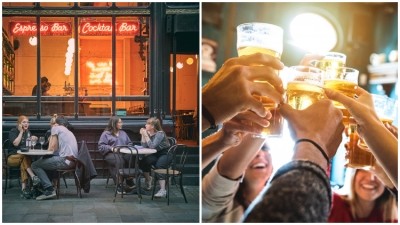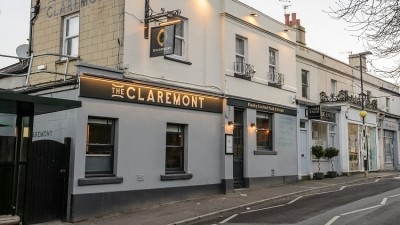Licensing Hub – Legal with Poppleston Allen
Putting the house in order

Introduction – 1794
At the time of The Morning Advertiser’s inception, Great Britain had (relatively) recently recovered from half a century of extreme intoxication throughout a period known as the ‘Gin Craze’. In brief, the Gin Craze was a result of the government’s decision in the late 17th century to pass legislation that reduced taxes on the distillation of spirits and allowed individuals to produce spirits without a licence, thereby making gin accessible and cheap.
Debauchery and alcohol-fuelled depravity ensued (for a visual interpretation see William Hogarth’s Gin Lane) and the government spent the first half of the 18th century trying to clean up the mess. Their attempts to rectify the situation came in the form of a number of acts aimed at controlling the consumption of gin through tax and increased licensing fees. Testament to the fact that some things will never change – this did not go down well with the masses.
1820s
The White Hart Inn, Edinburgh. Notorious duo Burke and Hare, who were believed to have killed 16 victims between them, frequented the Grassmarket pub in the late 1820s. There they would befriend their unsuspecting victims before luring them back to their nearby lodgings where they were murdered and their bodies sold to Dr Knox for dissection by his medical students.
1828
The Alehouse Act 1828 was followed by the Beerhouse Act 1830, which made brewing and beer sales much easier. For two guineas, anyone could obtain a licence to set up a beer house, where only beer or cider could be sold. This continued the government’s attempts to push the public away from gin and other spirits and increased competition between breweries. Beer houses grew and people even began opening them in the front rooms of their houses.
1830 onwards
Attitudes towards alcohol took a different turn with the temperance movement, which began in the mid-19th century. The temperance movement began in America and migrated to Scotland where the start of UK temperance began. In the UK, by 1830, intemperance was viewed as a social issue. The Industrial Revolution was in full swing and, as a result, the tolerance for workers missing days off work due to their levels of intoxication was no longer tolerated. By late 1830, the two guinea fee introduced by the Beerhouse Act 1830 was abolished, so beer was even more widely available. It soon became clear beer could have similar effects to spirits when consumed in large quantities and the temperance reformers viewed the Beerhouse Act as a mechanism that had encouraged intoxication rather than controlling it.
1853
The temperance movement saw the United Kingdom Alliance form in 1853. The aim of the alliance was to prohibit the sale of alcohol. However the alliance met growing resistance. By 1855, the Sale of Beer Act 1854, which sought to restrict Sunday opening hours, was amended following public demonstrations and petitions presented to parliament. Signatures in favour of prohibiting the sale of intoxicating liquors on a Sunday amounted to 50,248 while signatures in support of the repeal of the 1854 Act amounted to 154,216. Parliament deemed the closure to be an ‘unnecessary inconvenience to the public.’ The public had spoken and this was echoed once again in 1859 when a Prohibition Bill was defeated in the House of Commons.
1872
With the Licensing Act 1872, it became an offence to be drunk while in charge of carriages, horses, cattle and steam engines. The penalty was a fine not exceeding 40 shillings or imprisonment with or without hard labour for a term not exceeding one month.
1880
Throughout the 19th century, larger brewers had been increasing their tied estates, mainly by the purchase of smaller breweries and their pubs. Brewery ownership of licensed outlets grew quickly and by the mid-1890s, perhaps 90% of the trade of beer in the larger British cities was tied.
1881
Sunday closing was introduced in Wales by the Sunday Closing (Wales) Act 1881.
1891
The case of Sharp v Wakefield [1891] A.C. 17 established the principle that the discretion of the justices to refuse an application regarding a grant or renewal of a licence permitting the consumption of liquor ‘on’ premises, was absolute, provided that it was exercised judicially. The previous position had been that a licence could only be revoked where the licensee was guilty of misconduct. In this case, the ‘remoteness of the inn from police supervision, and the character and necessities of the neighbourhood’ were the reasons for refusal, which was upheld on appeal. There was increasing concern within the trade that justices of the peace, who were temperance advocates, were infiltrating licensing committees – which JPs who also happened to be brewers – were not permitted to sit on.
1901
The Intoxicating Liquor (Sale to Children) Act 1901 forbade the sale of alcohol to children under 14 years of age, except in pint measures – corked and sealed – for consumption off the premises.
1901
The creation of the ‘Fingerprint Bureau’ in the Met Police came about in 1901. Fingerprints were routinely taken from criminals and retained on file.
1902
The Licensing Act 1902 gave power to apprehend a person found drunk and incapable in any highway or other public place, or on any licensed premises, together with the power to apprehend a person found drunk in charge of a child under the age of seven. It prohibited the sale of alcohol to habitual drunkards and imposed a penalty for procuring alcohol for drunken persons.
1914-15
The Defence of the Realm Act 1914, passed immediately after the outbreak of war covered a range of measures designed to support the Allies, one of which was to restrict the hours for the sale of alcohol for licensed premises for lunch (12noon-2pm) and for supper (6.30pm-9.30pm). A campaign to persuade people to consume less alcohol led by David Lloyd George, the Chancellor of the Exchequer, failed and, in 1915, a further ‘no treating order’ was passed that any drink ordered was to be paid for by the person supplied, so as to dissuade people buying rounds of drinks or on credit.
1921
The Licensing Act 1921 emphasised that premises should remain closed for the sale of alcohol unless hours were specifically permitted for that purpose, the basic hours for weekdays being fixed by the licensing justices between 11am and, in the metropolis, 11pm, and elsewhere 10pm. The only restriction upon the power of justices to fix the permitted hours within the prescribed limits was the requirement for a break of at least two hours after 12noon. The hours laid down for Sundays were five. There was provision for a ‘supper hour extension’, extending hours in premises serving meals for up to half an hour after the end of permitted hours. Clubs were allowed to fix their own hours within the limits available to licensing justices.
1923
The Intoxicating Liquor (Sale to Persons under 18) Act 1923 prohibited the sale or purchase of alcohol to or by any person under the age of 18 years, but allowed the sale of beer, port, cider or perry to a person over the age of 16 years with a meal. The act also made it unlawful for a person under 18 to consume alcohol in a bar, or any person to purchase alcohol for consumption in any such bar by a person under that age.
1955
The Magdala, Hampstead, London. It was a crime of passion that was to lead to the last execution of a female in Britain. On Easter Sunday in 1955, Ruth Ellis shot her boyfriend, David Blakely five times outside the Magdala pub, killing him. Ruth gave herself up but went down in UK history as the last woman to be hanged.
1961
The Licensing Act 1961 created three new types of licence, namely restaurant licences, residential licences and combined restaurant and residential licences. A slightly extended drinking time was introduced, plus a 10-minute ‘drinking up’ time.
1964
The Licensing Act 1964 made it a criminal offence to sell quantities of ‘intoxicating liquor’ unless sales were authorised by a justices’ licence, or other permissions such as occasional licences, protection orders, registered clubs or seamen’s canteens.
1966
The Blind Beggar, Whitechapel, east London. This east end pub was the scene of the gangland killing of George Cornell by Ronnie Kray in 1966. Cornell, a member of the Krays’ rivals, the Richardson gang, was rumoured to have called Ronnie ‘a big fat poof’ earlier. Ronnie shot him in the head with his Luger. Cornell, 38, died in hospital that night. Nobody was surprised when not one witness came forward.
1967
The Road Safety Act of 1967 introduced the first maximum legal blood alcohol (drink-driving) limit in the UK. The limit was set at a maximum BAC (blood alcohol concentration) of 80mg of alcohol per 100ml of blood or the equivalent 107mg of alcohol per 100ml of urine. The Breathalyser Act was given royal assent. Transport minister Barbara Castle introduced the breathalyser as a way of gauging a person’s BAC (blood alcohol concentration) level at the roadside.
1982
Until 1982, women who wanted to drink in El Vino’s on London’s Fleet Street had to sit in the back and wait for table service – or ask a man to go to the bar for them. The justification was supposedly based on chivalry: the management felt that the rowdy atmosphere of the bar was unsuitable for women. Parliament had passed the Sex Discrimination Act in 1975, which made it unlawful for a person to discriminate against women when providing goods, facilities or services to the public. Anne Coote and Tess Gill brought a claim arguing that El Vino’s policy was a breach of the Sex Discrimination Act.
1989
The Beer Orders of 1989 obliged large national brewers to reduce the size of their tied pub estates to 2,000, plus half the number of pubs over 2,000 held by those brewer since 10 July 1989. It also proposed measures designed to loosen the ‘tie’ of their tenants, for example, allowing their tenants and tied loan clients to buy one brand of cask-conditioned beer and (from 1997) one bottle-conditioned beer of their choice on the open market (as a guest beer).
1998
The Human Rights Act came into force – this places the European Convention on Human Rights on a statutory footing, allowing UK courts to enforce its provisions.
1998
The Prince Arthur, Euston, London. This 1998 pub killing became the first murder case solved thanks to the power of the internet. Landlady Carol Fife was brutally stabbed to death during an after-hours burglary by one of her bar staff – Australian backpacker Gregory Mills. The killer, 28, fled the country with his £2,500 spoils. But he was brought to justice after he was stopped for speeding in the US state of Colorado. The cop had kept an eye on Interpol’s website and recognised Mills’s name. He was extradited back to the UK, convicted and jailed for life.
2003
Many of the provisions of the 1989 Beer Orders were removed.
2005
In November 2005, the Licensing Act 2003 came into effect. This allowed, in theory, for greater flexibility to all licensed premises (on and off), based upon the promise of a ‘café-culture’-style of drinking. A raft of legislation since has sought mainly to row back on this concept of ‘24-hour drinking’, despite the fact that very few pubs have 24-hour licences, let alone trade those hours.
For any legal enquiries please visit Poppleston Allen's website.






